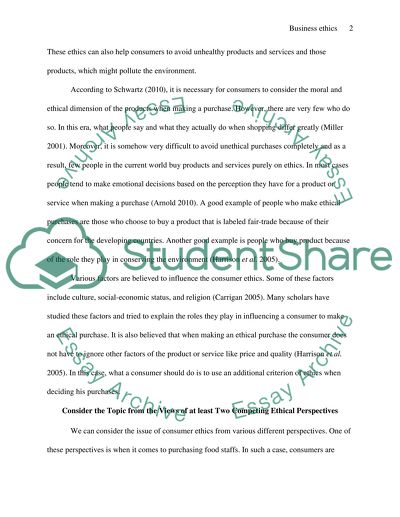Cite this document
(“The Ethics of Consumers Engaging in Ethical Purchases Essay”, n.d.)
Retrieved from https://studentshare.org/marketing/1397692-business-ethics
Retrieved from https://studentshare.org/marketing/1397692-business-ethics
(The Ethics of Consumers Engaging in Ethical Purchases Essay)
https://studentshare.org/marketing/1397692-business-ethics.
https://studentshare.org/marketing/1397692-business-ethics.
“The Ethics of Consumers Engaging in Ethical Purchases Essay”, n.d. https://studentshare.org/marketing/1397692-business-ethics.


